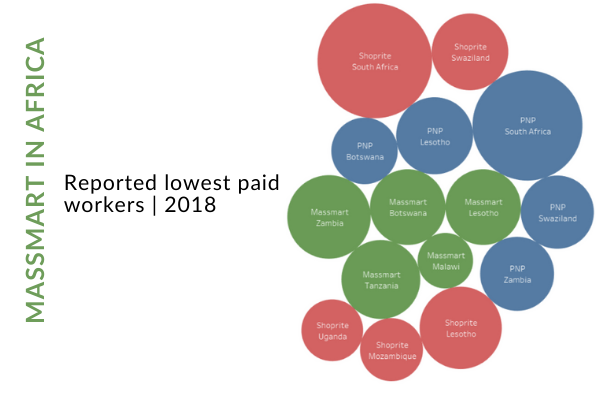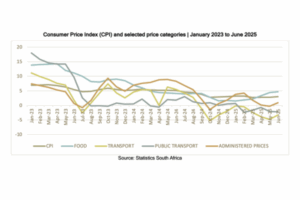African footprint
Trade unions organising at Massmart
Retail trade unions in sub-Saharan Africa have created solidarity through the annual Massmart, Pick n Pay and Shoprite alliance meetings hosted by UNI Global Union and Friedrich Ebert Stiftung – Trade Union Competence Center (FES-TUC) for worker leaders in the countries the South African MNCs operate. The Massmart Alliance meeting happened in October and participants represented retail unions in Zambia, South Africa, Kenya, Tanzania, Lesotho and Malawi. The participants, who are usually a mixture of union officials and union leaders, related their experiences relating to Massmart over the last year. Both success stories and challenges were shared towards strengthening cross-border alliances and negotiating for better conditions for all workers and in a rapidly changing workplace. The country reports tabled at the alliance meeting by participating unions spoke to issues such as union membership, collective bargaining, organizing and challenges.
Keys Highlights from Country Reports: How does Massmart treat its employees?
Tanzania
Kenya
Kenya Union of Commercial, Food and Allied Workers (KUCFAW) represented the workers of Game, Kenya. The union density is 85.50%, and there are currently no part-time workers. The union has four shop stewards working in this division. In June 2018, a CBA was signed with the company ensuring that Massmart workers in Kenya always get paid at least 500 Kenyan shillings above that which is stipulated in the law. The current minimum is 24 500 Kenyan Shillings (or USD 237.13). The workers work 45 hours per week, or 195 hours per month.vKUCFAW raised the issue of medical cover, which was not agreed in the 2018 CBA but waited for 2019, yet there is still no medical cover from Game in Kenya.
There are two Massmart stores in Malawi. All the 129 workers belong to the union, making union density 100%. In 2018, a CBA was signed setting the minimum wage at 52 500 Malawian Kwacha, which is around 70 USD per month. All workers are permanent and there are no part- timers. One of the biggest challenges mentioned by the union is that when workers are dismissed or resign they aren’t replaced. This often means that workers are forced to work in multiple departments. Also, workers are not given commission on sales, and there are less if any promotions.
South Africa
Jumbo (Masscash)
Browns and Weirs (Masscash)
Massbuild
Massdiscounters
Lesotho
Massmart operates under three brand names in Lesotho, namely Game, Browns and Cash and Carry. There are 168 Massmart employees in Lesotho, of which 128 (76%) are union members. Many of the other workers are management and supervisors. All of the workers are permanent. Union membership has not decreased over the last year, especially since dismissed workers were replaced. One of the biggest challenges is the position of ‘general assistant’, which is a common challenge for unions in the Massmart Alliance. The lowest-paid workers receive the following minimum wage: Game M3050; Browns M2250; Cash and carry M2230.
Zambia
In Zambia, Massmart operates Game, Builders Warehouse and Jumbo. Jumbo is yet to be organised. Game has 369 employees while Builders Warehouse has 318. Game currently has 22 shop stewards, of which 20 are men and 2 are women. The minimum wage is 2400 Kwacha per month, across the board. All workers are permanent. Working hours per week are 48 hours, and the union is fighting to have this reduced to 45 hours per week. The union has both an RA (Recognition Agreement) and a CBA (Collective Bargaining Agreement) in place, and these are implemented on the first of July every year. In the previous round of negotiations, the union negotiated an increase of between 6% and 9.5% depending on worker level.







